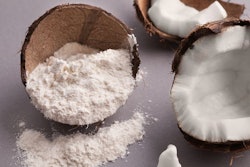
Worldwide, pet food and other animal feed manufacturers rebounded more quickly than expected from the effects of the pandemic in 2021, according to Alltech’s 2022 Agri-Food Outlook. The global dog, cat and other pet food industries fared even better than others in the feed sector. No regions reported declines in pet food production. The Alltech report provided data on how pet food makers performed by region in 2021.
Global pet food production growth by region in 2021
European pet food production grew 2.7% from 11.28 million metric tons (mmt) in 2021 to 11.59 mmt in 2021. African pet food production increased 2.1% in 2021 compared to 7% in 2020. African pet food production increased from 0.44 mmt to 0.45 mmt in 2021.
North American pet food production rose 12.7% in 2021, the second highest rate, from 9.41 mmt in 2020 to 10.60 mmt last year. The United States led this growth, fueled by pet adoptions and premiumization. Pet food production in the Asia-Pacific region increased the most in 2021. Production rose by 17.1% from 3.26 mmt to 3.81 million mt. Latin American dog, cat and other pet food production grew 7.7%, reaching 7.18 mmt in 2021 from 6.67 mmt in 2020.
Globally, pet food production increased 8.2% in 2021. Volume hit 34.165 mmt, up from 31.587 mmt in 2020.
Overall feed industry performance in 2021
The eleventh edition of Alltech’s annual feed production survey included data from more than 140 countries and more than 28,000 feed mills. Alltech’s analysts used this data to estimate that international feed tonnage has increased by 2.3%, to 1.235 billion metric tons produced in 2021.
In Alltech’s animal feed industry survey, supply chain problems and high feed prices ranked as the biggest problems. High material prices topped challenges affecting 33% of countries in the survey. While COVID-19 still loomed, geopolitical problems also disrupted exports in Africa, the Middle East and nations near Russia.














